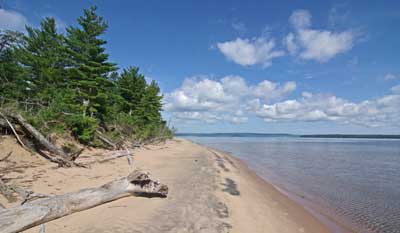
Things to do:
1. Get a new summer home. No, a winter home – somewhere south like Arizona. I never want to see ice again.
2. Decide what to take from the old summer home, now that the radiation has subsided. One person can go back per household for thirty minutes. My wife wants only an heirloom photo album. I want the oil painting by our son hanging in the bedroom, one of his first professional works, a hyper-realist portrayal of the house, just to say I took something. Nothing seems important, really. We get to take twenty pounds of stuff.
“I’ll have time and weight to spare,” I tell my wife. “Maybe I can help a neighbor.”
“I still feel so bad about Heather,” she says. I nod.
She lived two houses south of us and died in the accident. I saw it, and it was no accident, not that I’ll say anything different.
3. Remember what really happened. Heather and I were at Blackbird Beach – more underbrush than sand, so no one goes there, especially on a Tuesday afternoon. Something fell from the sky and crashed so near that the ground shook.
“A plane!” she said. She’d been facing that direction and saw it. “We’ve got to help them.” She leaped up, straightened her dress, and started running.
I stood up to put on my jeans. (I love my wife, but, well, I’m not perfect.) A gray, foggy trail in the sky led to the woods next to the beach.
Heather reached the plane first and got close. Trees lay flat or knocked sideways from the impact, roots in the air. From what I could see, I thought it was some sort of experimental model, all black, not just sooty as if it had burned, but blacker than a Stealth aircraft, like it was sucking in light. It had wings, I think, but I’m not sure how many. Overall, maybe the size of a modest private jet. That’s all I remember. I really didn’t get long to look, just a few seconds.
It was buzzing softly. Then something went bang like a rifle. I hit the dirt. Military training: it sticks with you even into retirement.
“Get down!” I shouted to Heather, but she stood there staring, reaching a hand toward it.
Another bang, and another. Icy fog was spreading out from the plane, frosting weeds as it flowed over them. I put two and two together and guessed that trees were splitting the way they do when their sap freezes in winter. Cryogenic temperatures were emanating from that aircraft thing. What was its payload?
Heather screamed, jerked her hand back, and fell. I ran to help her, but when I got there and grabbed her hand, the cold hit my fingers so hard and fast I knew I was getting frostbite. I yanked my hand to free it, and her hand broke off at the wrist, hit the ground, and shattered. The fog kept flowing outwards, carrying an acid stench. She stared up at me, but by then her eyes might have been frozen open.
I turned and ran flat-out the half-mile to my house. On the way, a squadron of military helicopters flew overhead toward the crash. I didn’t know if I should feel relieved or even more terrified. They’d arrived much too fast.
My wife stood on the porch. “What crashed? Did you see it?”
I lied. “No. I don’t know. The Army wants us to leave, so let’s go. Fast.”
She got her purse, and we jumped in the car and left. By then a Humvee was coming down our street, and a soldier with a bullhorn was ordering us to evacuate. We stopped to snatch the blind old lady at the end of the block and kept going.
Later that afternoon, the nuclear bomb exploded. Just a little one. The official story called it a training accident with a tactical warhead, which unleashed nattering public fury about inexcusable carelessness and incompetence. Conspiracy theorists say there were similar accidents in several parts of the world at about the same time, so something sinister happened, but they’re nuts. It was simple gross military incompetence – that’s my official story.
4. Make an appointment for another required medical checkup for possible radiation illness. That’s what they tell us: report every three months until further notice, and call a special hotline immediately if we notice any change in our health.
At the first checkup two days after the accident, I told the doctor exactly what had happened to me. Duty again. They need to know whatever there is to know. I have my own secret hotline now, and my hand has been examined twenty different ways.
Also in secret, I reported for interrogation. A team grilled me for hours, asking not just about what I saw but everything I knew about the area, myself, and Heather. I found myself saying a lot of sweet things about her, and missing her more than I’d realized. They told me nothing about what really happened, not that I’d expected them to. When they were done, a captain, a middle-aged woman whose name I deliberately forgot, asked me to keep the whole thing classified.
“Well, you can see, I have my own reasons for that. I’m not especially proud of myself.”
She nodded. “I understand. And I’m sorry for your loss.”
“I appreciate that.”
5. Get something to remember Heather by. Something that won’t make my wife suspicious or get me arrested for looting. Maybe one of those pretty little rocks she used in the garden she loved so much. I can set it in the sun and then hold it, warm and smooth and solid, the way she had been, before.
6. Find a way to sleep at night.
First published in Asimov’s Science Fiction, December 2014. You can also download a PDF of the story.
